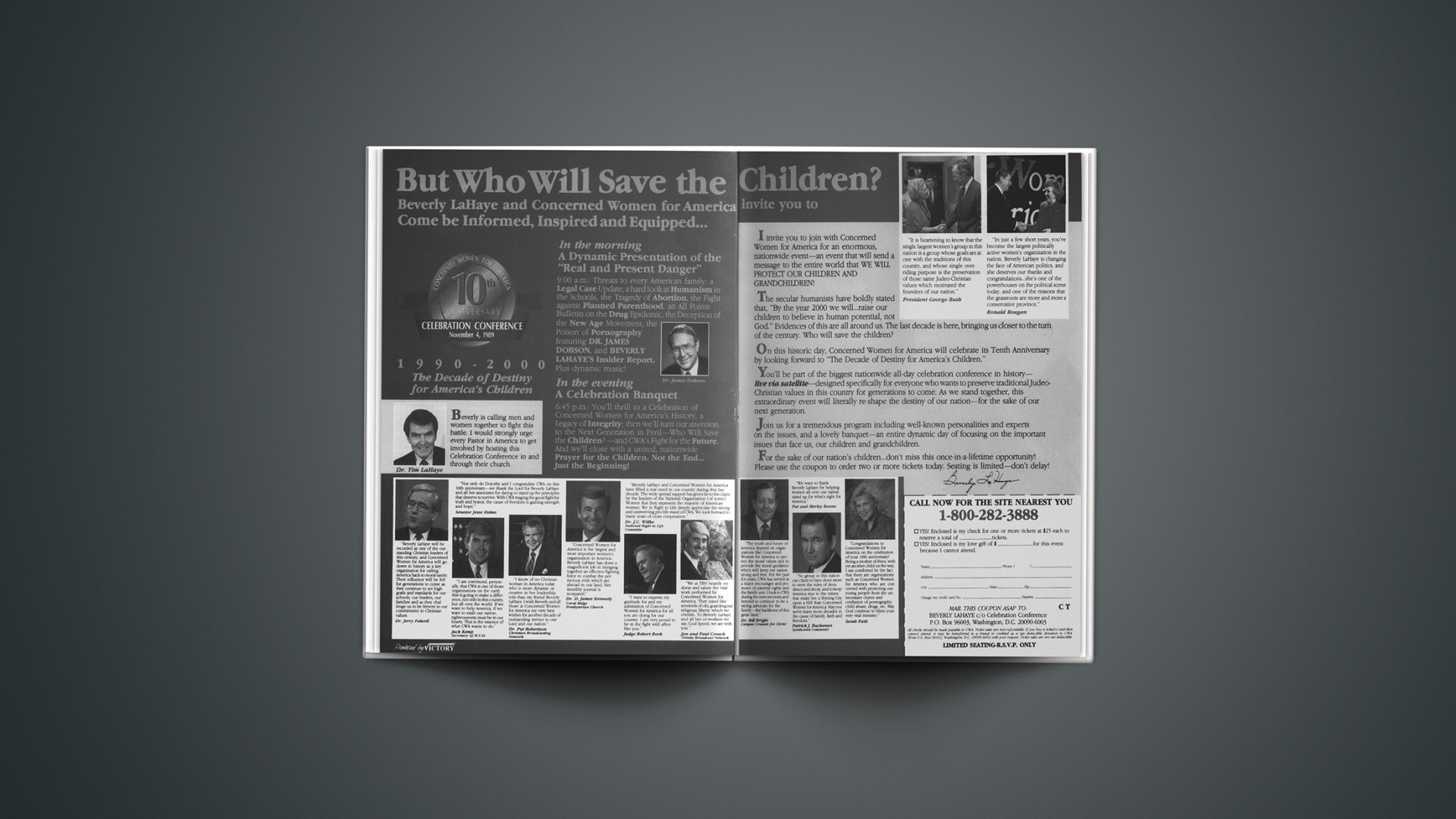Remaking God In Our Image
Our society has taken Jesus and recreated him in our own cultural image. When I hear Jesus being proclaimed from the television stations across our country, from pulpits hither and yon, he comes across not as the biblical Jesus, not as the Jesus described in the Bible, but as a white, Anglo-Saxon, Protestant Republican … God created us in his image, but we have decided to return the favor and create a God who is in our image.
—Tony Campolo in U (April/May 1988)
Branches, Not Vines
Victorious living and effective soul-winning service are not the product of our better selves and hard endeavours, but are simply the fruit of the Holy Spirit. We are not called upon to produce the fruit, but simply to bear it.
—Roy Hession in The Calvary Road
Drought Brings Desert
During times of revival … prayer flows more easily. Preaching is more powerful. Guidance is more vivid. In contrast at other times we learn the tougher lessons of walking by naked faith in the Word. This may partly explain why times of revival alternate with times of spiritual drought. Certainly we learn lessons in drought that could never be learned in a cloudburst. But who would want to settle for permanent drought?
—John White in When the Spirit Comes with Power
Bad Tradeoff
A cheer for Jesus is no substitute for the Apostles’ Creed.
—Carl F. H. Henry, quoted in
The Reformed Journal (April 1989)
Understanding The Bible
Alas, so many intelligent people become preoccupied with dates and linguistic problems concerning the Bible that they have no time to seriously consider the Bible’s main theme, God’s love for us and our loving response to him. They seem so concerned for truth, yet neglect the real purpose of truth, which is to bring us closer to the God of truth.
—William Law in Christian Perfection (abridged and paraphrased by Marvin D. Hinten)
Substitutes For Truth
It is natural for the mind to believe, and for the will to love; so that, for want of true objects, they must attach themselves to false.
—Blaise Pascal in Pensées
Real Truth
There is today an evangelical rationalism which says that the truth is in the Word and if you want to know truth, go learn the Word. If you get the Word, you have the truth. That is the evangelical rationalism that we have in fundamentalist circles: “If you learn the text you’ve got the truth.”
This evangelical rationalist wears our uniform. He comes in wearing our uniform and says what the Pharisees … said: “Well, truth is truth and if you believe the truth you’ve got it.”
Such see no beyond and no mystic depth, no mysterious or divine. They see only, “I believe in God the Father Almighty, Maker of heaven and earth; and in Jesus Christ His only Son, our Lord.” They have the text and the code and the creed, and to them that is the truth. So they pass it on to others. The result is we are dying spiritually. To know the Truth, we must know the Son.
—A. W. Tozer in Power for Living (Oct. 16, 1977)
The Passing Parade
If anything should put the “superstar” in his place, it’s the fact that an interpreter’s fame is ephemeral.… The main thing is that the composers will live on. And they can only do so through the interpreter and the listener at a given moment. That becomes the value of my point in time.
—Cellist Yo Yo Ma, quoted in The New Yorker (May 1, 1989).
As It Was In The Beginning
Tradition is the living faith of the dead; traditionalism is the dead faith of the living. Tradition lives in conversation with the past, while remembering we are where and when we are and that it is we who have to decide. Traditionalism supposes that nothing should ever be done for the first time, so all that is needed to solve any problem is to arrive at the supposedly unanimous testimony of this homogenized tradition.
—Jaroslav Pelikan in an interview in U.S. News & World Report (June 26, 1989)
Big Difference
The devil tempts us to bring us down, but God tests us to bring us up.
—Jerry W. Mixon in Along the Way
No Infinity In This Life
At 65 one is not merely 20 years older than one was at 45. One has exchanged an infinite future—and one had a tendency to look upon it as infinite—for a finite future.
—Simone de Beauvoir in The Coming of Age










